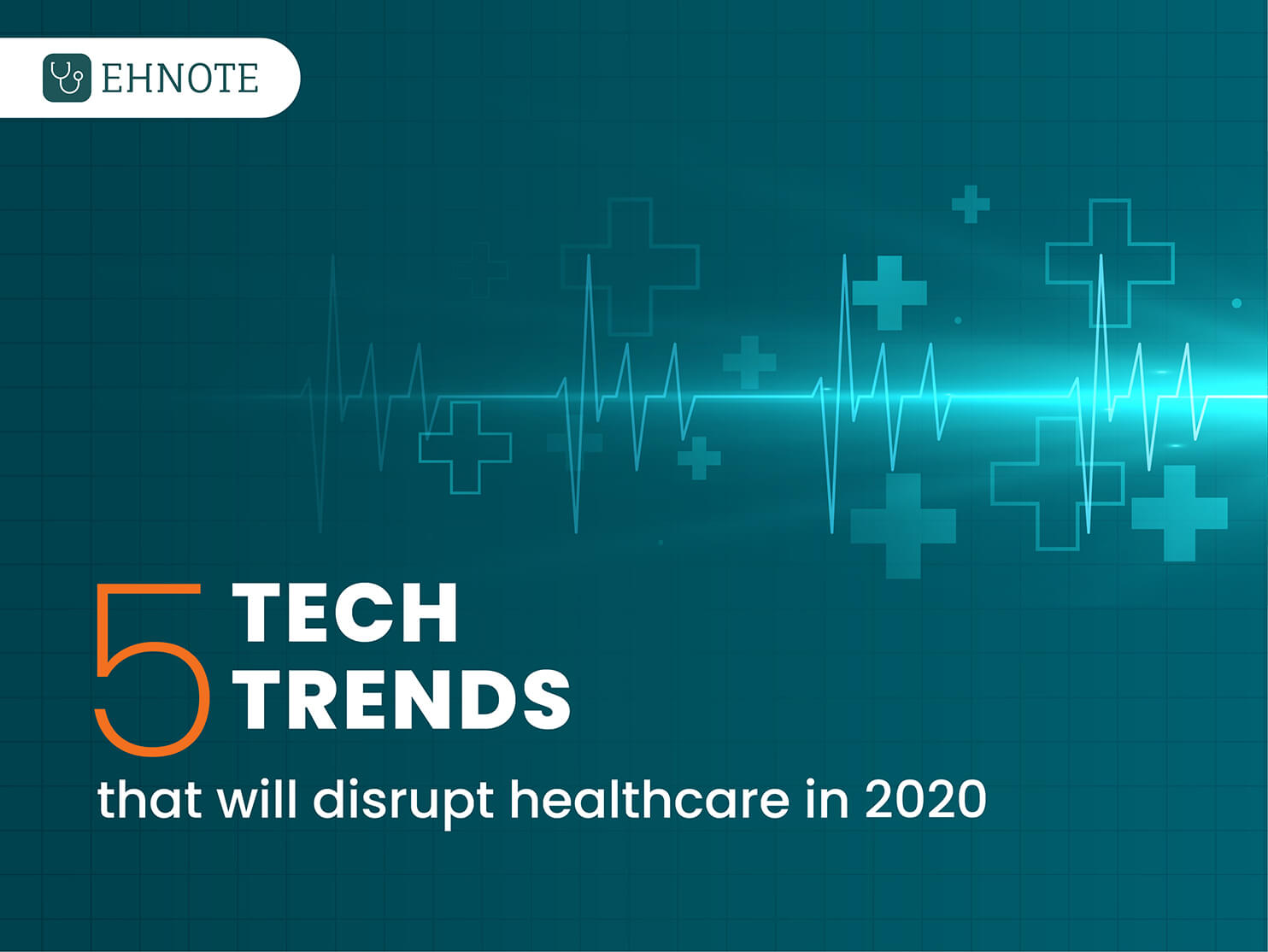5 Tech Trends that will disrupt the healthcare in 2020

Technology Trends in healthcare – Overview
Technology as we know today is a part of the 4th Industrial revolution that is characterized by the fusion of technologies blurring the lines between physical, digital and biological spheres. These technologies include artificial intelligence, big data, machine learning and the Internet of Things or IoT that is resulting in an increased proportion of household and business appliances connected to the internet.
The fourth industrial revolution or 4IR is bringing vast changes in the way the healthcare sector is required to provide healthcare services to the people/patients at large. Technology trends in healthcare are shifting from cutting edge to ubiquity more quickly today than in the past. Healthcare facilities, physicians, and insurance companies alike are working to foster an environment that puts the patient first while focusing on safety, efficiency, and cost saving.
Technology Trends to watch in the healthcare industry - Summary
The expansion of technologies is impacting the healthcare sector from robotic caregivers for geriatric patients to pills that alert patients or people when they forget to take their medications. Some technologies are more advanced than others but all have the power to advance healthcare both in the short term as well as the long term. The following five technology trends are going to disrupt the healthcare in 2020 as discussed hereinbelow-
-
Augmented Intelligence or AI
The healthcare technology is picking up steam with Augmented Intelligence or AI driving the next wave of innovation. With physicians and nursing shortages and rapidly aging population is creating a demand for telehealth options and in-home technology. AI is playing a big role in helping radiologists to sift through patient scans than ever before. AI is rather playing a supporting role in healthcare delivery resulting in increased efficiencies in the workflow of physicians.
-
The Internet of Medical Things – IoMT
The Internet of Medical Things or IoMT is the fusion of IoT, Telemedicine, and Telehealth technologies. IoMT approach is the use of many wearables that includes ECG, EKG monitors and other medical devices. By the end of 2020, over 30 billion IoMT devices are expected to be deployed in the healthcare industry.
-
Training through Virtual Reality and Augmented Reality
The Information technology or IT sector is already reaping the benefits of Virtual Reality (VR) and Augmented Reality (AR) but the challenge remains for industry specific applications of VR and AR. In healthcare, surgical training is showing a powerful application. Now VR & VR are being used to improve mapping and diagnostic data in clinics and hospitals nevertheless, its efficacy in surgical training is very effective and promising.
-
Surgical Robotics
Robotics had already made inroads into the manufacturing and construction sector and the emergence of surgical robotics industry is exploding. Robots are enabling surgical procedures to be less invasive, cheaper and more precise than ever before. Surgical robotics is now being used in major operations such as gallbladder surgery resulting in successful operation only with single incision and scar less surgery.
-
Blockchain Technology
Healthcare facilities are waking up to the opportunities that Blockchain technology can bring in. Blockchain as a distributed data model promotes data sharing thereby helping doctors and other healthcare providers make better and accurate diagnoses and prescribe more effective treatment. Blockchain technology benefits go beyond diagnosing and treatment from keeping track of patient medication to securing digital signatures in electronic health records such as EHNOTE.
The above mentioned new technologies are bound to help healthcare facilities provide higher quality patient care at a lower cost.
